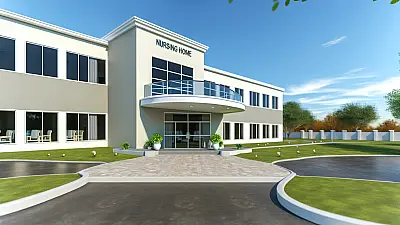WOLF POINT, MT - Faith Lutheran Home faces regulatory scrutiny after state inspectors documented deficiencies in the facility's grievance process management and oversight during a March 13, 2025 complaint investigation.

Breakdown in Resident Complaint System
The inspection revealed significant gaps in how the nursing home handles and processes resident and family grievances. Federal regulations require all nursing facilities to maintain a robust grievance system that allows residents to voice concerns about their care, treatment, or living conditions without fear of retaliation.
The facility's grievance process oversight was found to be inadequate, potentially leaving residents without proper channels to address legitimate concerns about their care. This system serves as a critical safety net for nursing home residents, who depend on family members and facility staff to advocate for their needs when they cannot do so themselves.
Medical and Safety Implications
A functioning grievance process is essential for maintaining quality care in nursing facilities. When oversight breaks down, residents may experience delayed responses to care concerns, unresolved safety issues, or inadequate attention to medical needs. The grievance system serves as an early warning mechanism that can prevent minor issues from escalating into serious health and safety problems.
Residents in long-term care facilities often face complex medical conditions requiring coordinated care from multiple healthcare professionals. Without proper grievance procedures, concerns about medication errors, care plan modifications, or quality of life issues may go unaddressed, potentially compromising resident health outcomes.
Regulatory Requirements and Standards
Federal nursing home regulations mandate that facilities establish and maintain grievance procedures that are accessible to all residents and their representatives. These procedures must include clear timelines for investigating complaints, documented response protocols, and protection against retaliation for those who file grievances.
The grievance process serves multiple functions in nursing home operations. It provides residents with a formal mechanism to express concerns, helps facility administrators identify systemic issues, and creates documentation that regulatory agencies can review during inspections. When this system lacks proper oversight, it undermines the facility's ability to maintain compliance with federal care standards.
Industry Best Practices
Well-managed nursing facilities typically maintain grievance logs, conduct regular reviews of complaint patterns, and use grievance data to improve care delivery systems. Staff training on grievance procedures ensures that all team members understand their role in addressing resident concerns promptly and appropriately.
The oversight component is particularly crucial because it ensures grievances receive proper attention from facility leadership and that corrective actions are implemented when necessary. Without adequate management oversight, even well-intentioned grievance procedures may fail to protect resident rights and welfare.
Facility Response and Compliance
Nursing facilities must demonstrate compliance with grievance process requirements through documentation, staff training records, and evidence of systematic oversight. Regulatory agencies evaluate these systems during routine inspections and complaint investigations to ensure residents have meaningful access to grievance procedures.
The citation represents a regulatory finding that requires the facility to develop and implement corrective measures to address the identified deficiencies in grievance process management and oversight.
Full Inspection Report
The details above represent a summary of key findings. View the complete inspection report for Faith Lutheran Home from 2025-03-13 including all violations, facility responses, and corrective action plans.
💬 Join the Discussion
Comments are moderated. Please keep discussions respectful and relevant to nursing home care quality.